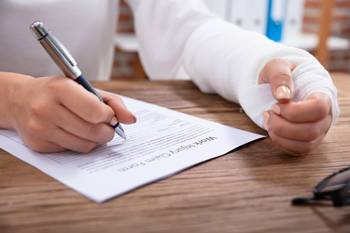 California has premises liability laws to protect citizens and property owners from injuries and accidents within commercial establishments. In case of injuries and accidents within a commercial property, the victim can file claims from the establishment’s owner to augment medical bills and income loss.
California has premises liability laws to protect citizens and property owners from injuries and accidents within commercial establishments. In case of injuries and accidents within a commercial property, the victim can file claims from the establishment’s owner to augment medical bills and income loss.
There are different types of premises liability claims in California, categorized on a case-to-case basis. Still, first, it’s essential to learn the difference between premises liability and how it relates to a property owner’s negligence.
What is premises liability?
If you are a commercial property owner, you are responsible for providing a safe environment for the people you are inviting to visit your premises. This responsibility is called ‘duty of care.’ It involves putting safety measures around the property to prevent accidents. Some specific examples include:
- Placing a ‘wet floor’ sign on the floor area where liquid has spilled after mopping
- Trimming trees around the property to prevent falling branches
- Placing warning signs around the slippery ground during the rainy season
- Covering and tucking in hanging cables to avoid electrical accidents
- Removing obstacles where people might trip and fall and placing warning signs
For instance, if you are the owner of a condominium, hospital, school, or shopping mall, California premises liability laws require you to ensure reasonably safe conditions. These property safeguards can protect property owners from paying maximum premises liability claims and answer to charges of negligence.
What is negligence?
What does ‘negligence’ mean in relation to property liabilities? A property owner can be accused of negligence if sufficient evidence shows that the owner failed to place safety measures to prevent accidents.
The property owner does not intend to cause the accident. However, the liability comes from failing to implement reasonable care to prevent accidents. Proving negligence in court is not easy because the owner will defend their stance. The biggest challenge is countering their defenses and having solid evidence to prove negligence.
Common types of premises liability claims
There are more than a dozen types of premises liability claims, and each one differs depending on the given scenarios of a case. Here are some of the most common types:
- Slip and fall injuries – Accidents on wet or icy walkways often occur during the winter or rainy season. Property owners should put up warning signs and take anti-slip measures to avoid accidents that lead to body and head injuries.
- Accidents in staircases – Staircases and escalators are some of the most accident-prone areas in any commercial property. Anything from loose stair steps, uneven carpet, loose railing, and slippery surfaces can cause accidents.
-
- Animal bites – Dogs, cats, or any other animal owned by the property owner that bites, scratches, or causes harm with potential health risks to the visitors can be a reason for the victim to file for claims.
- Trips and falls – Trips and falls can happen if a person trips and falls on a floor crack, unmarked hump on the ground, or a loose ground cable.
- Pool accidents – Resorts, condominiums, and other establishments with a swimming pool can be liable for negligence if they fail to place safety precautions such as safety barriers, warning signs, and anti-slip pool tiles.
- Leaking of toxic chemicals – Exposure to toxic fumes and chemicals that leads to health problems can be grounds to file premises liability claims. The case is even made stronger if the victim experiences an immediate and severe ill reaction and is rushed to a medical facility for treatment.
How to establish liability
California laws require that you prove three things: the owner has a care of duty, a duty breach, and that the breach was the direct cause of the injury. California laws allow a statute of limitation of two years for victims to seek premises liability claims. In most cases, property owners are the receivers of the liability charges, but in some cases, they can also be filed against the landlords, property managers, or the homeowners’ association.
Takeaway
Premises liability and negligence are not separate legal concepts but are closely connected. Premises liability is a form of property safety negligence. Establishing a liability case is very difficult, so it’s best to find an experienced lawyer to help, especially in severe injury cases.

Founder Dinis Guarda
IntelligentHQ Your New Business Network.
IntelligentHQ is a Business network and an expert source for finance, capital markets and intelligence for thousands of global business professionals, startups, and companies.
We exist at the point of intersection between technology, social media, finance and innovation.
IntelligentHQ leverages innovation and scale of social digital technology, analytics, news, and distribution to create an unparalleled, full digital medium and social business networks spectrum.
IntelligentHQ is working hard, to become a trusted, and indispensable source of business news and analytics, within financial services and its associated supply chains and ecosystems





























